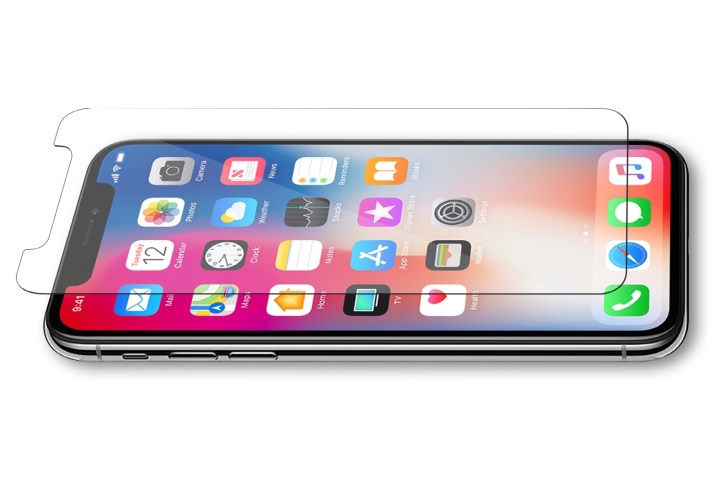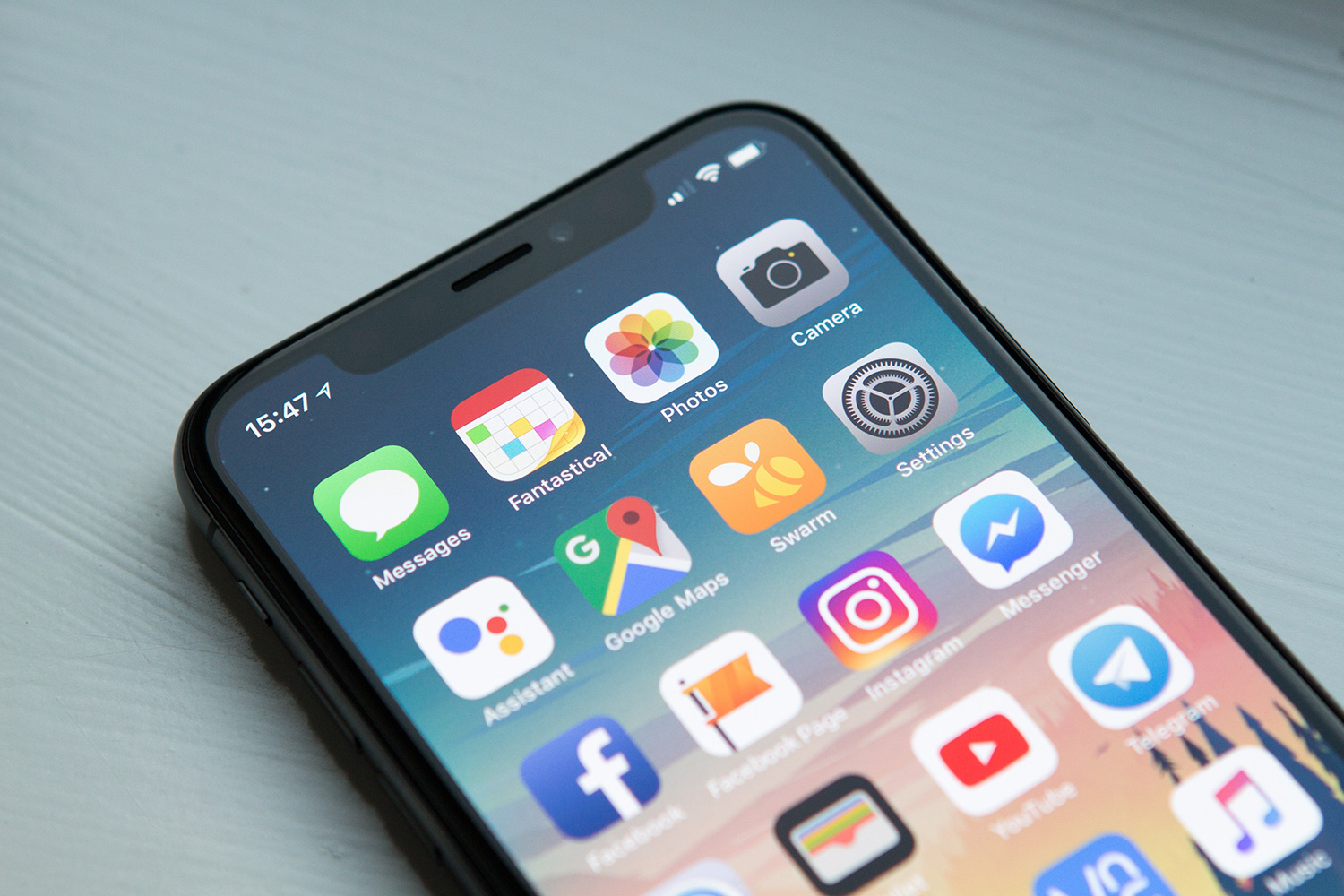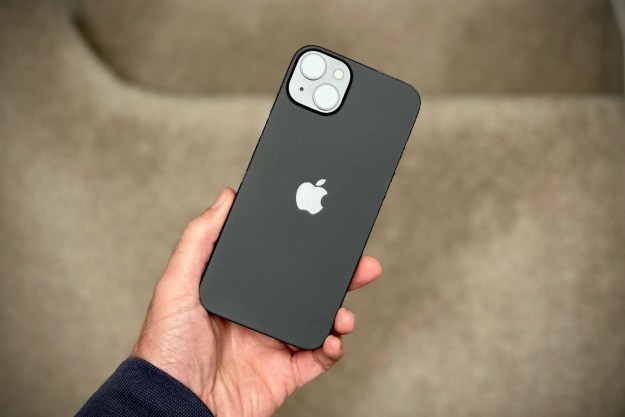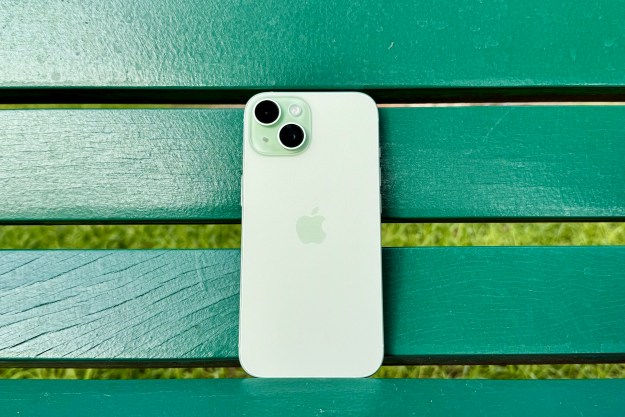
Tech Armor has a new screen protector for various iPhone devices called the Enhance, but the company claims it does more than protect your smartphone’s screen. The Enhance Screen Protector Embedded with Clear Technology reportedly shields your brain from cellphone radiation and improves the phone’s signal strength, while extending battery life in the process. Skeptical? So were we, so we decided to try it out and see if there are any truths to these promises.
Smartphones and radiation
But first, we need to talk about radiation. Smartphones emit radio frequency (RF) energy, a form of non-ionizing electromagnetic radiation. There have been scores of studies exploring the health risks of exposure to this radiation from smartphones — such as whether you can get cancer from prolonged cellphone use — but the consensus from the scientific community suggests there is no evidence linking the two. The U.S. Food and Drug Administration has the following statement on its website:
“According to current data, the FDA believes that the weight of scientific evidence does not show an association between exposure to radio frequency from cell phones and adverse health outcomes. Still, there is consensus that additional research is warranted to address gaps in knowledge, such as the effects of cell phone use over the long-term and on pediatric populations.”
“Still, there is consensus that additional research is warranted to address gaps in knowledge.”
The Federal Communications Commission, the Centers for Disease Control and Prevention (CDC), the National Institute of Environmental and Health Sciences, the National Cancer Institute, and the World Health Organization all provide similar statements, including that more research is needed.
The U.S. Federal Trade Commission even has a website warning people of cellphone radiation scams, advising people against radiation shields as “there is no scientific proof that so-called shields significantly reduce exposure from these electromagnetic emissions.”
“In fact, products that block only the earpiece – or another small portion of the phone – are totally ineffective because the entire phone emits electromagnetic waves,” according to the FTC. “What’s more, these shields may interfere with the phone’s signal, cause it to draw even more power to communicate with the base station, and possibly emit more radiation.”
Tech Armor’s method

The Enhance is a screen protector that’s available for the iPhone X, iPhone 6, iPhone 7, iPhone 8 (including all the Plus models), as well as the iPhone SE and iPhone 5S. It has the same defensive strength as Tech Armor’s other screen protectors, it looks ordinary, and it’s applied the same way. Tech Armor claims Enhance can do three additional things.
The first is it can redirect harmful radiation. The screen protector — which covers the entire phone — acts as a barrier between your head and the RF emissions (when you hold the phone up for phone calls). The embedded Clear Technology in the Enhance will redirect up to “100 percent” of those emissions away to the sides and rear of the phone, away from your brain.
The technology that enables this isn’t new — it’s called a band-pass filter, and it’s currently used in cellphone towers to reject frequencies within a certain range to filter out unwanted emissions, and pushes the signals towards a specified direction. Tech Armor told Digital Trends the folks at Clear Technology helped translate this tech into the screen protector using carbon nanotubes. These are microscopic in size and the team was able to print it on the screen protector glass in a transparent manner.
We have no way to test if the Enhance really does push away RF energy, but even if it does, the overwhelming consensus suggests there is no consistent link between RF energy from smartphones and health risks. That being said, if it provides some peace of mind for you, we can’t argue against it. We decided to test Tech Armor’s two other claims that stem from redirecting the RF energy: Better battery life and stronger cell signal.
The test
We slapped the Enhance screen protector onto an iPhone X on AT&T, and compared it with an iPhone X without any screen protector on the same network (and same plan). We went to various locations where we often had low signal to test whether cell signal improved with the Enhance. The idea is that the “redirected emissions concentrate the phone’s signal to provide a stronger signal for both calls and data downloads,” according to Tech Armor. Whereas Tech Armor’s claims are based on controlled lab environments, we used a real-world approach (minus the radiation testing, which we had no way of testing at press time).
Did it work? It’s hard to tell. In most of our test locations, we found a negligible difference of signal strength between the two; we’d often have the same amount of bars on both iPhone X devices.

But in one instance, the iPhone X with the Enhance screen protector fluctuated between three and four bars of connectivity, while the other iPhone stayed at 2 bars. The improved connectivity was sustained for more than an hour, so there very may well be some truth to this claim. Did we notice a difference in our day-to-day experience with the phone and screen protector? No, we didn’t start suddenly seeing a dramatic improvement in our cell signal everywhere.

When your smartphone is struggling to find cell signal, it chews through more battery life. Tech Armor claims that since the cell signal is stronger with the Enhance, you should see up to 40 percent longer battery life. We set both our iPhone X devices to similar configurations, and played a 10-hour long YouTube video through a LTE data connection — this is when we noticed the slightly stronger service on the Enhance screen protector. The two iPhone devices consistently had a 2 percent difference in battery life, with the Enhance-covered
Should you buy it?

The Enhance screen protector costs $30 from Tech Armor’s website, and it’s available now also on Amazon. It’s more expensive than the bulk of screen protectors on the market, but you can also find ones from other manufacturers that cost $40 or more. (You can see a selection of our favorite iPhone X screen protectors, ranging from less than $10 to $30 and up.)
Stripping away all the claims Tech Armor makes, the screen protector itself is anti-smudge and anti-scratch ballistic glass, so it should keep your screen free from scratches. If you don’t care about cellphones and the RF energy they emit, or don’t particularly think the signal and battery improvements are worth the price, then there are far more affordable options you can buy. However, if you are concerned about potentially harmful radiation coming out from your smartphone, this screen protector should give you peace of mind if the price tag is agreeable. In the end, you are purchasing a high quality screen protector, and that should be the main draw.
Editors' Recommendations
- iPhone 16: news, rumored price, release date, and more
- 5 phones you should buy instead of the iPhone 15 Plus
- This is the iPhone concept of my dreams
- I found an amazing new way to use my iPhone 15 Pro Max
- One of the most iconic iPhone accessories is back — and it’s great


